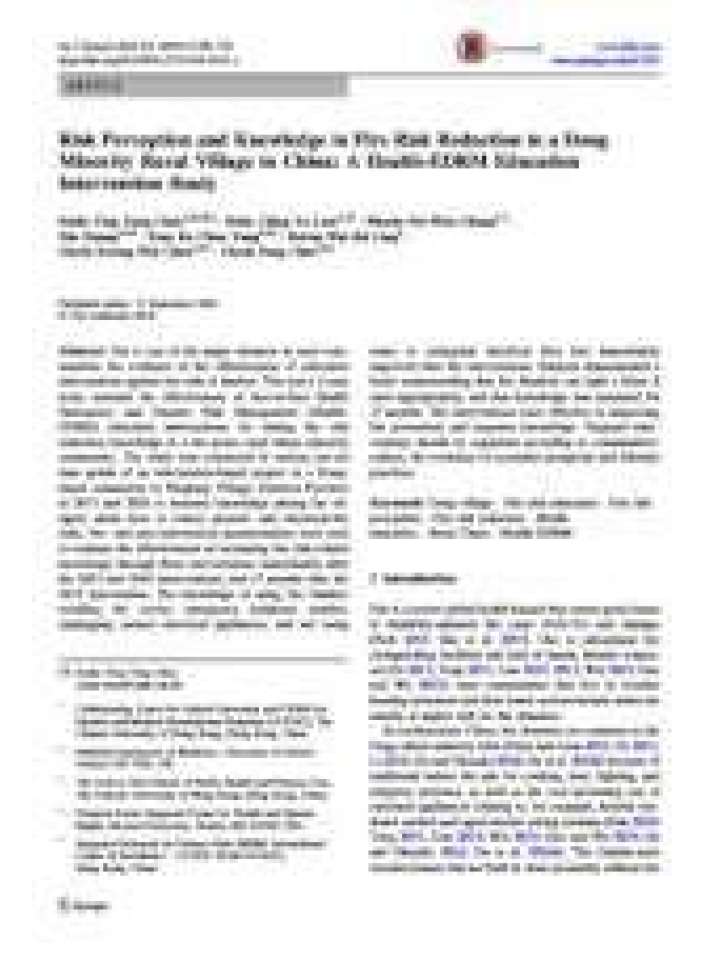Risk perception and knowledge in fire risk reduction in a Dong minority rural village in China: A health-EDRM education intervention study
Fire is one of the major disasters in rural communities but evidence of the effectiveness of education interventions against fire risks is limited. This was a 2-year study that assessed the effectiveness of face-to-face health emergency and disaster risk management (Health-EDRM) education interventions for raising fire risk reduction knowledge in a fire-prone rural ethnic minority community.
The study was conducted in various pre-set time points of an intervention-based project in a Dong-based community in Nanjiang Village, Guizhou Province in 2015 and 2016 to increase knowledge among the villagers about how to reduce general- and electrical-fire risks.
Pre- and post-intervention questionnaires were used to evaluate the effectiveness of increasing fire risk-related knowledge through these interventions, immediately after the 2015 and 2016 interventions, and 17 months after the 2015 intervention. The knowledge of using fire blanket, recalling the correct emergency telephone number, unplugging unused electrical appliances, and not using water to extinguish electrical fires had immediately improved after the interventions. Subjects demonstrated a better understanding that fire blankets can fight a blaze if used appropriately, and that knowledge was sustained for 17 months.
The interventions were effective in improving fire prevention and response knowledge. Targeted interventions should be organized according to communities’ culture, the evolution of economic prosperity and lifestyle practices.
Explore further
